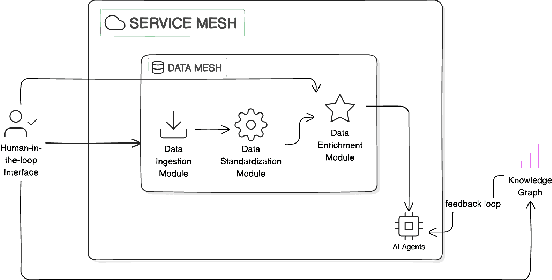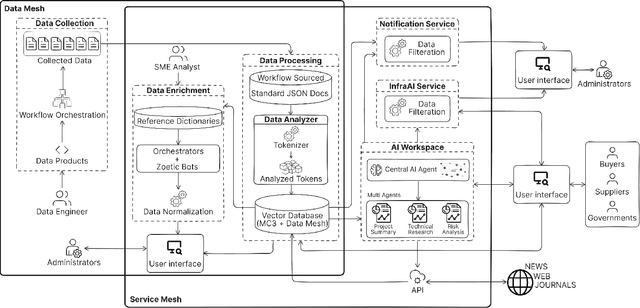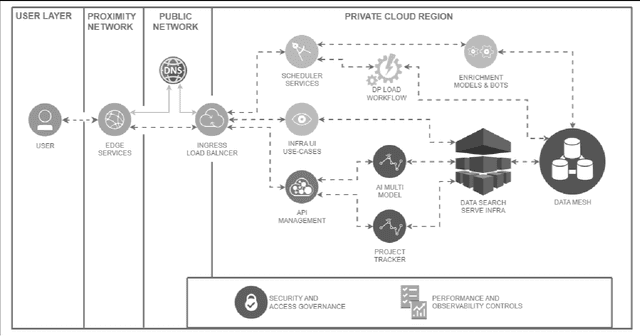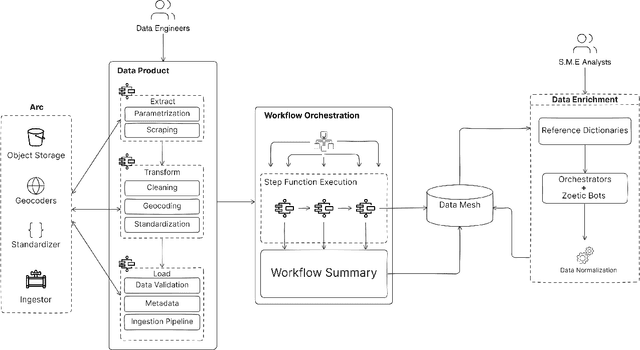Bilal Ayyub
An AI-Driven Data Mesh Architecture Enhancing Decision-Making in Infrastructure Construction and Public Procurement
Nov 29, 2024



Abstract:Infrastructure construction, often dubbed an "industry of industries," is closely linked with government spending and public procurement, offering significant opportunities for improved efficiency and productivity through better transparency and information access. By leveraging these opportunities, we can achieve notable gains in productivity, cost savings, and broader economic benefits. Our approach introduces an integrated software ecosystem utilizing Data Mesh and Service Mesh architectures. This system includes the largest training dataset for infrastructure and procurement, encompassing over 100 billion tokens, scientific publications, activities, and risk data, all structured by a systematic AI framework. Supported by a Knowledge Graph linked to domain-specific multi-agent tasks and Q&A capabilities, our platform standardizes and ingests diverse data sources, transforming them into structured knowledge. Leveraging large language models (LLMs) and automation, our system revolutionizes data structuring and knowledge creation, aiding decision-making in early-stage project planning, detailed research, market trend analysis, and qualitative assessments. Its web-scalable architecture delivers domain-curated information, enabling AI agents to facilitate reasoning and manage uncertainties, while preparing for future expansions with specialized agents targeting particular challenges. This integration of AI with domain expertise not only boosts efficiency and decision-making in construction and infrastructure but also establishes a framework for enhancing government efficiency and accelerating the transition of traditional industries to digital workflows. This work is poised to significantly influence AI-driven initiatives in this sector and guide best practices in AI Operations.
Reliability, Resilience and Human Factors Engineering for Trustworthy AI Systems
Nov 13, 2024Abstract:As AI systems become integral to critical operations across industries and services, ensuring their reliability and safety is essential. We offer a framework that integrates established reliability and resilience engineering principles into AI systems. By applying traditional metrics such as failure rate and Mean Time Between Failures (MTBF) along with resilience engineering and human reliability analysis, we propose an integrate framework to manage AI system performance, and prevent or efficiently recover from failures. Our work adapts classical engineering methods to AI systems and outlines a research agenda for future technical studies. We apply our framework to a real-world AI system, using system status data from platforms such as openAI, to demonstrate its practical applicability. This framework aligns with emerging global standards and regulatory frameworks, providing a methodology to enhance the trustworthiness of AI systems. Our aim is to guide policy, regulation, and the development of reliable, safe, and adaptable AI technologies capable of consistent performance in real-world environments.
 Add to Chrome
Add to Chrome Add to Firefox
Add to Firefox Add to Edge
Add to Edge